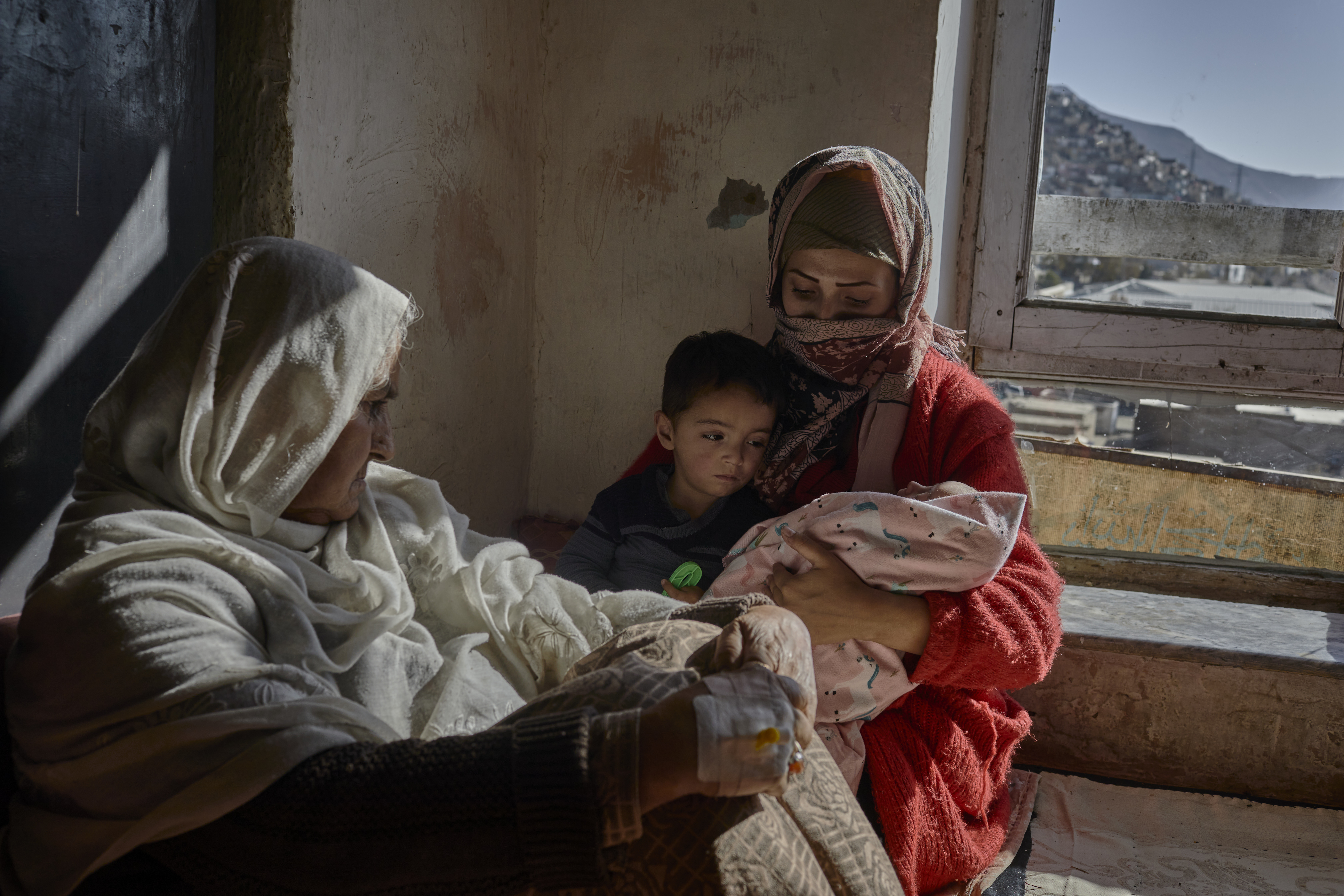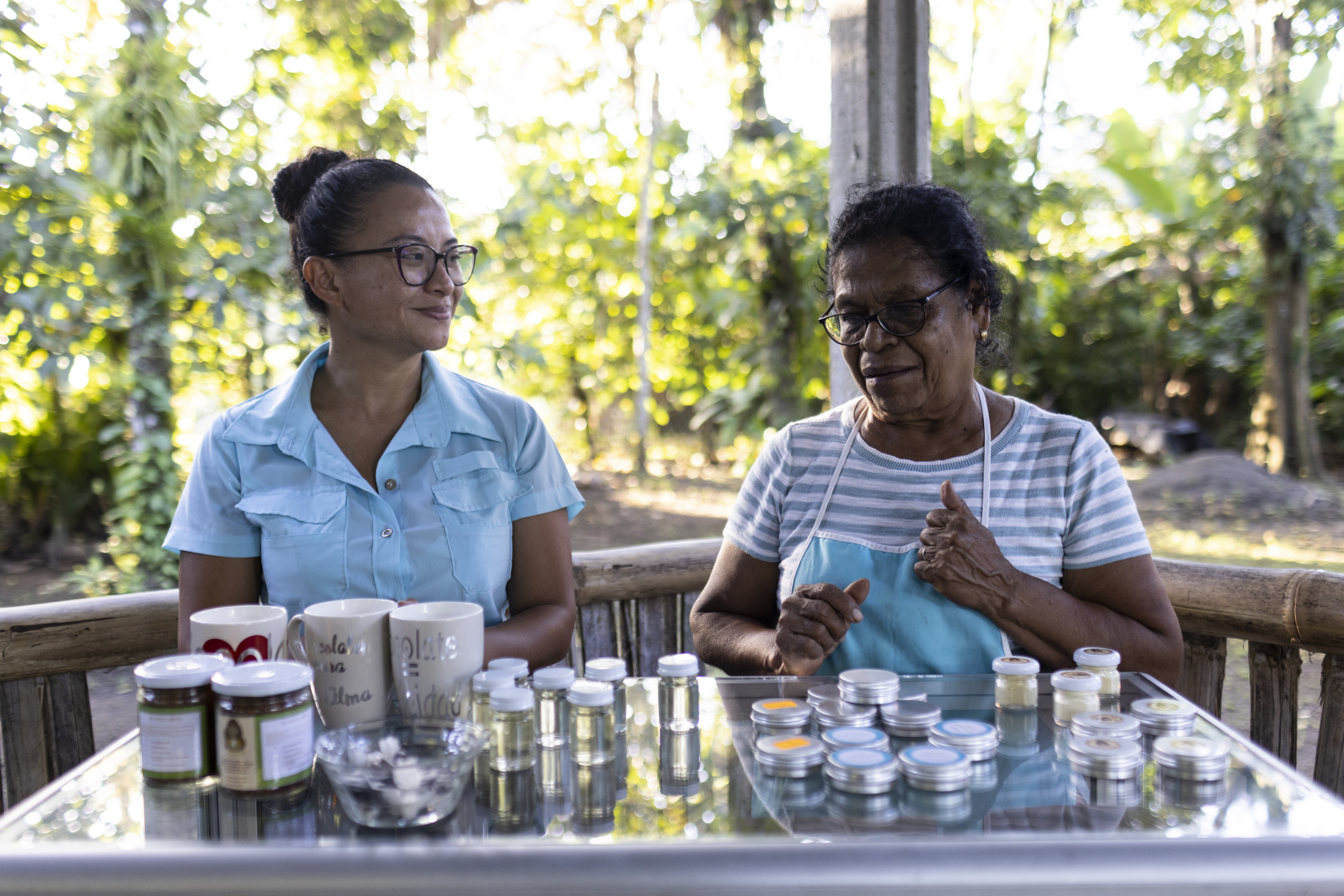UNHCR and partners tackle sexual violence in southern Colombia
UNHCR and partners tackle sexual violence in southern Colombia

MOCOA, Colombia, November 8 (UNHCR) - When a 14-year-old displaced girl was raped earlier this year in a busy area of the southern Colombian town of Mocoa, hardly anyone batted an eyelid. In another part of town, meanwhile, two sisters, aged six and 10, can't sleep and are too scared to leave their home after being sexually assaulted in their neighbourhood.
Sexual violence has become almost routine in Mocoa and other towns in the volatile department of Putumayo, with young internally displaced women and girls particularly vulnerable. But over the past two years, UNHCR has been working with several partners to change public perceptions about the issue.
The latest official figures for violence against women in Mocoa, compiled by Colombia's National Institute of Legal Medicine and Forensic Sciences, show 28 cases of murder, 190 of sexual violence and 253 of domestic violence between 2004 and 2008. Many of the victims were aged under 18 years. Those are significant totals for a town of just 36,000 people.
And, as UNHCR's Pär Westling noted, a large percentage of these victims are women and girls forced to flee their rural homes and seek shelter in Mocoa, where almost 60 per cent of the population is displaced.
"We know that displacement increases the risk of sexual and domestic violence, with women finding themselves without their previous social networks, without access to protection safety nets and often in the presence of irregular armed groups," added Westling, who heads UNHCR's field office in Mocoa.
But UNHCR and its partners, including the authorities and the Church, have faced several problems in tackling this scourge. For starters, few victims report cases of sexual violence - and that's especially true for indigenous women, who face stigmatization if word gets out that they have been assaulted by strangers or beaten in their homes. Most victims are also very young and have little or no knowledge of their rights, including how to file a complaint.
Another problem has been the lack of institutional capacity to effectively address the complex reality of sexual violence, though the local authorities recognize that their staff need training to help victims and to process cases.
Accordingly, UNHCR in 2008 formed an action team with the local police, the municipal and provincial authorities, the Catholic Church, civil society - including women's and displaced people's groups - and international organizations.
The team meets monthly to discuss and approve measures to improve public awareness about violence against women, strengthen institutional capacity to attend and protect victims, and ease their access to the judicial system.
Last year, the team launched an awareness campaign dubbed, "Basta! Gender-Based Violence is a Crime." Colourful murals bearing awareness messages were put up in prominent places around the town, while UNHCR staff visited the poorest communities to drive the message home. The campaign also used blogs and an electronic newsletter.
This year, the focus is on raising awareness among Mocoa's male population about the evils of sexual and domestic violence and the need to eradicate such destructive behaviour. As part of this push, the refugee agency has held workshops with youth groups and will encourage the participation of men and boys in the annual 16 Days of Activism Against Gender Violence campaign starting on November 25, through a campaign based on the idea that masculinity is at odds with sexual violence.
UNHCR staff are also developing a "road map" that they say will make it easier for victims of violence to seek help and get justice. "It explains in pictures and easy language how to denounce sexual violence and how to access the services of the local hospital and other institutions," said Laura Badillo, a gender expert with UNHCR in Mocoa.
The refugee agency is also providing guidance to police and hospital staff on the best ways to record cases of sexual violence and to help the victims. In a bid to improve statistical data, the action team has recently devised a questionnaire that will be distributed to various interested parties and institutions. It includes information on things such as displacement, ethnicity and age and replaces earlier less detailed questionnaires.
UNHCR is under no illusions that there will be a rapid change, but it is encouraged by the initiatives taken in the past two years. One major result of the work carried out since 2008 is that sexual and gender-based violence is more openly discussed in Mocoa as people are now more knowledgeable about the problem and more willing to condemn it.
"We believe this UNHCR-led effort is paying back," said Miguel Palacios, a community services officer for UNHCR in Mocoa. "Impunity is losing ground," added Palacios, who is a UN Volunteer.
One sign of that was the recent arrest of a man suspected of sexually assaulting the 14-year-old indigenous girl. She, meanwhile, is being given psychological support, health checks and police protection.
By Kaweh Hagi in Mocoa, Colombia








